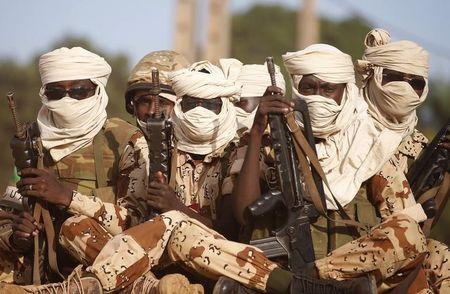Nigerian forces take back four towns from Boko Haram

Nigeria and its Lake Chad Basin allies pushed Boko Haram out of four more towns in the northeastern Nigerian state of Borno after a joint allied offensive conducted over the weekend.
According to a Yahoo! News article citing AFP, a joint operation involving Nigerian, Chadian and Cameroonian military forces succeeded in liberating the towns of Mafa, Mallam Fatori, Abadam, Marte and Gamboru.
"Our troops are in control (of these areas) after operations which had the active support of volunteers (vigilantes) and our friendly neighbours," national security spokesman Mike Omeri said in a statement issued to AFP.
In addition to the four towns in Borno, Omeri also revealed that 11 other towns in Adamawa state have been liberated from the Boko Haram. The statement claimed that the Nigerian military have pushed Boko Haram out of the towns of Gujba and Gulani in northeast Yobe state.
Boko Haram's activities have significantly escalated as Nigerian presidential elections approach. The group recently expanded into cross border attacks in neighbouring countries, especially Cameroon. Boko Haram also launched a second attack on Borno state capital Maiduguri on Sunday, after it was defeated by the Nigerian army on its initial attempt on January 22.
The extremist group's insurgency has pushed the four nations in the Lake Chad Basin – namely Chad, Nigeria, Niger and Cameroon – into working together on a coordinated offensive to contain the Islamic extremist group. The four nations were subsequently joined by Benin in the west of Nigeria.
Before sending troops to join the weekend offensive against Boko Haram, Chad also sent soldiers to reinforce the Cameroonian border against incursions by the extremist group.
While a joint offensive could succeed in curbing Boko Haram's activities, Yahoo! News also said that President Goodluck Jonathan's candidacy could suffer political consequences as a result of the alliance. His government's willingness to allow foreign forces to conduct military activities in Nigerian soil is allegedly seen as an "embarrassment" by some in the country.











